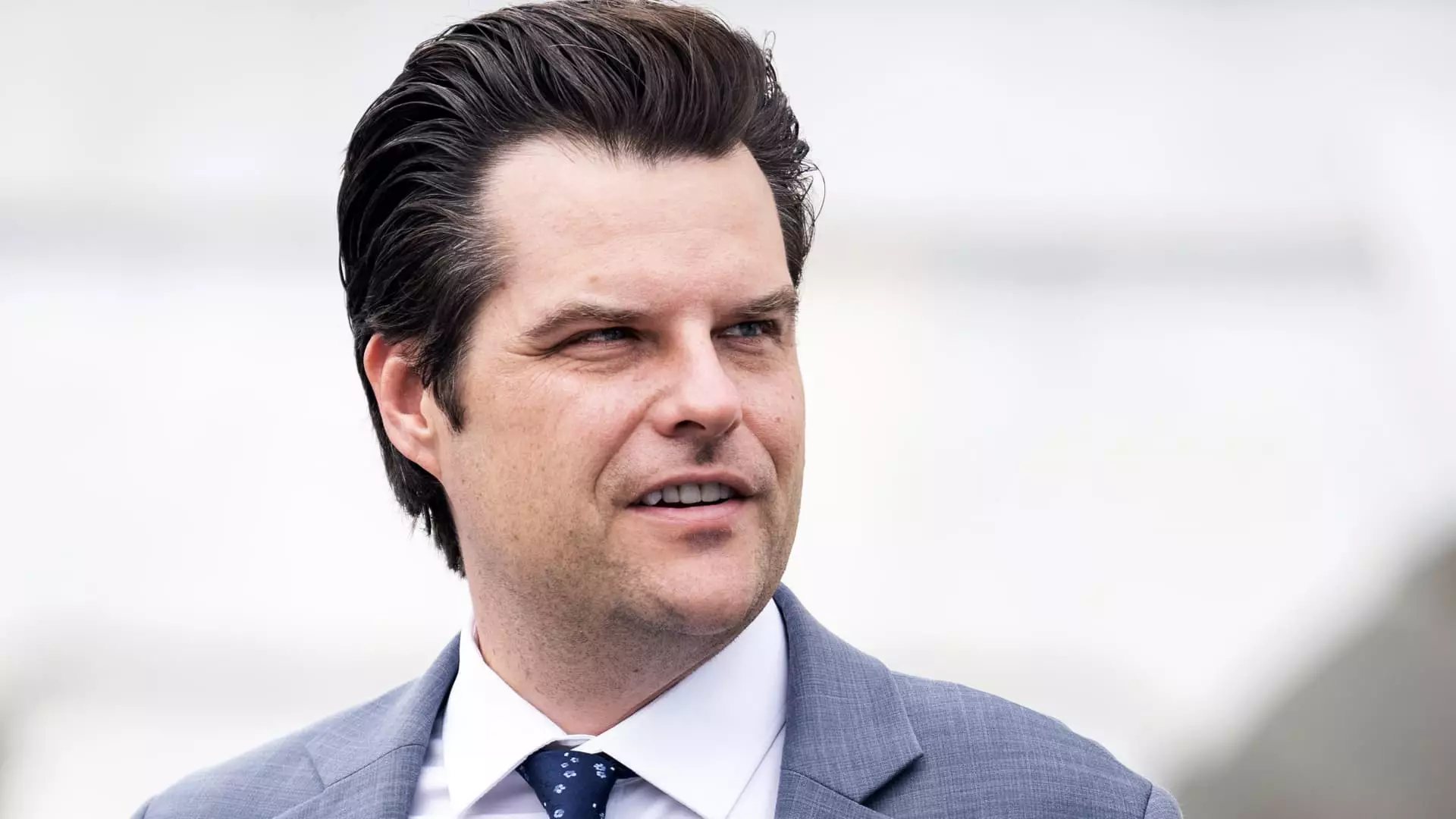As Donald Trump prepares for his second presidential term, one of his most controversial appointments is the nomination of Florida Republican Rep. Matt Gaetz as U.S. Attorney General. This decision embodies not only a strategic political maneuver but also highlights the shifting dynamics between the GOP establishment and Trump’s commitment to loyalty over traditional qualifications. Gaetz’s potential ascendance to this critical role is a focal point for examining the future of the Republican Party and the reevaluation of ethical standards in political leadership.
Trump’s choice of Gaetz signifies a marked departure from conventional political wisdom, prioritizing allegiance to him and his MAGA agenda over experience or integrity. Gaetz has emerged as a vocal supporter of Trump, often characterized in media as a staunch loyalist to the former president. His alignment with Trump aligns with a broader trend within the Republican Party, where adherence to Trump’s ideologies often supersedes traditional qualifications for leadership roles.
This phenomena raises significant questions about the direction of governance under Trump’s potential administration. Critics argue that such an approach undermines the foundational principles of the Department of Justice (DOJ), which ideally should be guided by impartiality and rule of law. With Gaetz’s nomination, there are concerns about whether the DOJ will prioritize loyalty to political leadership over the pressing need for integrity in legal proceedings.
While Gaetz has managed to assert his innocence amid allegations of sexual misconduct and drug use, his past controversies complicate his potential role as the head of the DOJ. The House Ethics Committee’s investigations into Gaetz’s behavior have garnered significant media scrutiny, and Trump’s quick nomination could be perceived as an attempt to shield Gaetz from the repercussions of these investigations. By resigning from Congress to assume the role of Attorney General, Gaetz could effectively evade further investigations by the Ethics Committee, given that the committee’s jurisdiction ceases once a member of Congress resigns.
This situation raises a critical ethical dilemma: should individuals facing serious allegations of misconduct be entrusted with positions of immense power that directly regulate legal enforcement in the nation? For many within and outside the Republican Party, Gaetz’s nomination stands as a stark indicator of Trump’s disregard for traditional ethical constraints in favor of maintaining a solid base of loyal supporters.
The political environment surrounding Gaetz’s nomination is ripe for dissent and unease even among Republicans. Several GOP figures have expressed astonishment at Trump’s appointment of Gaetz, illustrating a potential rift in the party. Senate Republican Susan Collins articulated her concerns regarding Gaetz’s character to fulfill the responsibilities of Attorney General, highlighting the apprehension some traditional Republicans feel regarding Trump’s strategy of courting loyalty over integrity.
The fallout from Gaetz’s selection could extend beyond individual opinions, influencing the GOP’s broader strategy as they prepare for future elections. The nomination signifies an attempt by Trump to consolidate power and defenses against potential challengers within the party. However, this consolidation could lead to an overemphasis on loyalty that alienates moderate Republicans and independents who seek accountable governance free from ethical controversies.
Ultimately, the nomination of Matt Gaetz as Attorney General raises fundamental questions about the future of the Republican Party and the principles it stands for. As Trump positions his administration, the potential confirmation of Gaetz could signify a reshaping of the GOP landscape, one where loyalty is favored over transparency, and political allegiance overrides traditional ethics.
While many supporters may view this appointment as a victory for Trump and his agenda, it inevitably poses challenges ahead for a party needing to reconcile its base with the wider political landscape. As the Senate prepares for the confirmation hearings, a spotlight will be placed not only on Gaetz’s qualifications but on the broader implications of his appointment for the integrity and direction of federal law enforcement under Trump’s leadership. The outcome could either bolster Trump’s narrative of loyalism or expose cracks within a political framework striving to redefine its identity in a polarized era.


Leave a Reply